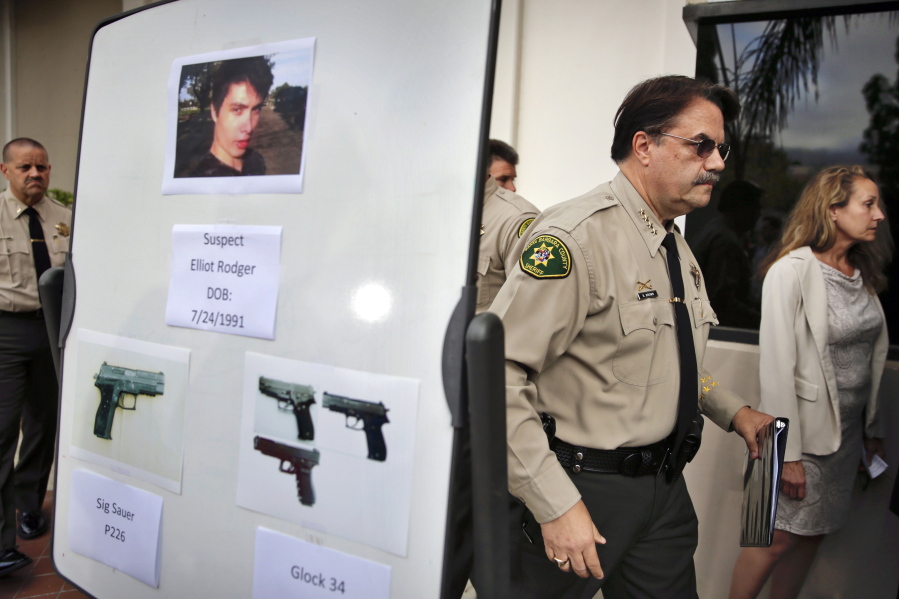SACRAMENTO, Calif. — The warnings around Nikolas Cruz seemed to flash like neon signs: expelled from school, fighting with classmates, a fascination with weapons and hurting animals, disturbing images and comments posted to social media, previous mental health treatment.
In Florida, that wasn’t enough for relatives, authorities or his schools to request a judicial order barring him from possessing guns.
Only five states have laws enabling family members, guardians or police to ask judges to temporarily strip gun rights from people who show warning signs of violence. Supporters of these measures, deemed “red flag laws” or gun-violence restraining orders, say they can save lives by stopping some shootings and suicides.
Florida, where Cruz is accused of using an AR-15 assault weapon to kill 17 people at his former high school, lacks such a law. He was able to legally own the semi-automatic rifle, even though his mother, classmates and teachers had at times described him as dangerous and threatening, and despite repeated police visits to his home.
Red flag legislation has been introduced by Democratic state lawmakers, but it hasn’t been heard during this year’s session, and its fate is uncertain in a state Legislature controlled by Republicans who generally favor expanding gun rights.
After Wednesday’s shooting, Republican Gov. Rick Scott said he will work to make sure people with mental illnesses don’t have access to guns, but offered no specifics. Florida’s GOP Sen. Marco Rubio — facing withering criticism over his acceptance of $3.3 million in career campaign cash donated through the National Rifle Association — is going a step further now.
Rubio said on a Sunday morning show that state legislators should “absolutely” consider enacting a law enabling family members or law enforcement officials to ask a court to remove guns from a person who poses a danger. Rubio, who once served as Florida’s House speaker, told Miami CBS affiliate WFOR that it’s an “example of a state law” that could have helped prevent the Florida shooting.
In 2014, California became the first state to let family members ask a judge to remove firearms from a relative who appears to pose a threat. Its legislature took action after a mentally ill man, Elliot Rodger, killed six students and wounded 13 others near the University of California, Santa Barbara, before killing himself.
California’s law also empowers police to petition for the protective orders, which can require authorities to remove firearms for up to one year. Connecticut, Indiana, Oregon and Washington also have some version of a red flag law.
More than a dozen others, including Hawaii, New Jersey and Missouri, are considering bills to enable family members or police to petition the courts to take weapons away from people showing signs of mental distress or violence.
The Florida shooting has revived debate about whether teachers and school administrators should have that authority as well, given that people at Cruz’s high school witnessed much of his erratic behavior.
California lawmakers voted to expand their law in 2016 so that high school and college personnel, co-workers and mental health professionals can seek the restraining orders, but Gov. Jerry Brown called the effort premature and vetoed it.
State Assemblyman Phil Ting, a San Francisco Democrat, said he plans to reintroduce the bill.



